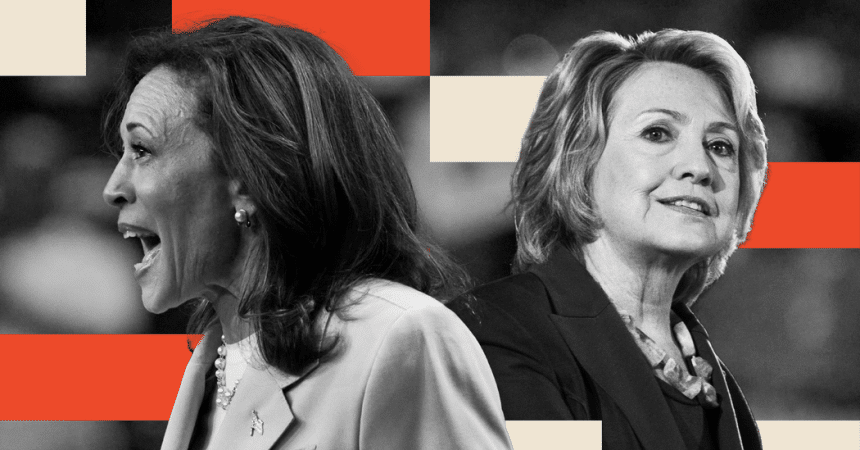Patrick Healy: The Democratic convention will be bookended by two historic figures: Hillary Clinton, the first woman nominated for president of a major party, will speak on Monday night, and Kamala Harris on Thursday night will become the second woman nominated to lead America. Maureen, Michelle, Frank: The four of us covered Clinton over the years, and now write about Harris. Clinton and Harris are approaching history pretty differently. For one thing, Clinton leaned into gender in 2016, talking about breaking the glass ceiling. And she won a big vote from women, but her percentage of the women’s vote was a little less than Barack Obama’s — and she had a slightly wider gender gap. Maureen, how do Clinton and Harris differ in how they deal with gender?
Maureen Dowd: Hillary Clinton did not lose because she was a woman. She lost because she was a Clinton. The family just had too much baggage, and scarring from the Obama dismantling of the Clinton machine in 2008. The biggest difference between Harris and Clinton is that Harris is not tangled up in the issue of gender. In 2008, Clinton’s strategist Mark Penn told her to run like a man. That didn’t work, so then in 2016 she ran a campaign focused on her gender, with Katy Perry music and Lena Dunham appearances.
Healy: Her allies were talking about gender, too, like Madeleine Albright saying at a Clinton campaign event that “there’s a special place in hell for women who don’t help each other.”
Dowd: The moment when it became clear that Clinton was too wrapped around the axle on gender was in the second debate with Donald Trump in 2016, when he was lurking behind her onstage and she did not turn around and let him have it. I think she could have won the election in that moment if she had delivered a line like Ludacris’s “Move, bitch, get out the way.” But she froze, not wanting to come across as the aggressive harridan that she was caricatured as by her critics. As she later wrote in her book about the campaign, “Maybe I have overlearned the lesson of staying calm, biting my tongue.” It was a fatal overcorrection, I think.
Healy: Have you seen anything along these lines with Harris?
Dowd: So far, Harris has not emphasized her gender, which is smart. The best template was set by Nancy Pelosi, who is comfortable in her feminine style but never leaves any doubt that she could crush you if you go against her. When she ran for speaker, she told her caucus: “Don’t vote for me because I’m a woman. And don’t vote against me because I’m a woman.”
Michelle Goldberg: One advantage Harris has in terms of gender is the unconventional way she was nominated. Women have historically done better in parliamentary systems than presidential ones, perhaps because they rely less on open competition within parties, and so women aren’t punished for displaying their ambition. Harris didn’t become the nominee by taking on a man but by supporting one, and then by stepping in when the party needed her. As a result, she ascended without creating many resentments among other Democrats.
The New York Times











